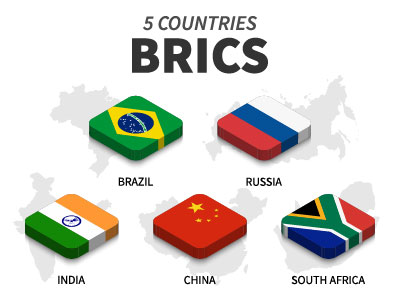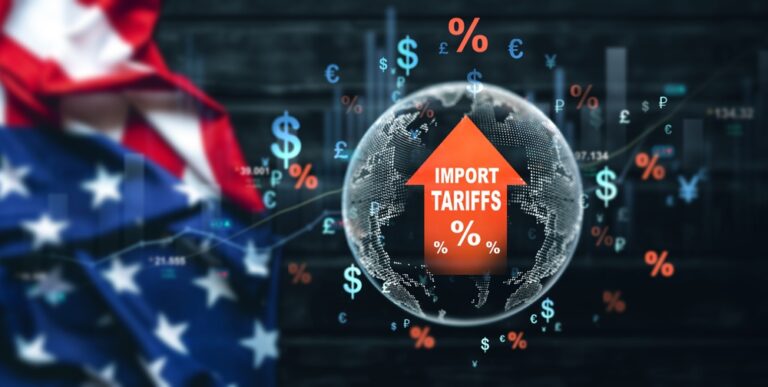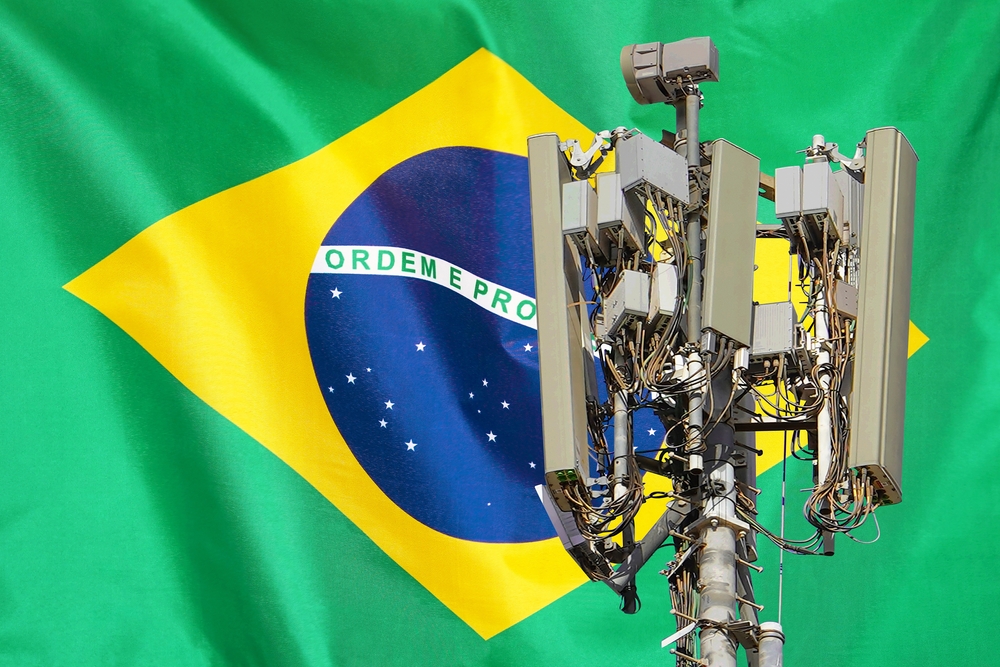Table of Content
ToggleIntroduction
Brazil, as a prominent member of the BRICS (Brazil, Russia, India, China, and South Africa) nations, plays a significant role in this economic and political bloc. Brazil’s participation in BRICS has allowed the country to engage in various collaborative initiatives and increase its global reach. However, as the war in Ukraine unfolds and tensions continue to rise, Brazil finds itself navigating an increasingly complex international landscape.
The impact of the war in Ukraine on global markets and commodities has influenced the relationship between the G7 and BRIC nations, including Brazil. While Brazil has already established itself as a relevant player within the BRICS group, the outcome of the war in Ukraine presents new challenges and opportunities for Brazil’s future role within the bloc. This includes finding the right balance between maintaining its non-alignment position and strengthening its ties with other Global South countries.
Key Takeaways
- Brazil is a significant member of BRICS, fostering collaboration and increasing its global presence.
- The war in Ukraine presents challenges and opportunities for Brazil’s role within BRICS.
- Brazil’s future in BRICS may involve maintaining non-alignment while deepening ties with the Global South.
Brazil’s Current Role in BRICS
Economic Ties and Growth
Brazil plays a significant role in the BRICS alliance, which consists of Brazil, Russia, India, China, and South Africa. As one of the world’s largest economies, Brazil contributes to the group’s overall economic growth and development. Despite recent challenges, Brazil’s economy has shown resilience and potential for future growth. The country maintains strong trade relations with its BRICS counterparts, further fostering economic ties in various sectors, including agriculture, industry, and services1.
Moreover, Brazil’s vast natural resources provide opportunities for collaboration and investment within BRICS. The shared goal of enhancing economic cooperation has led to several initiatives, such as BRICS New Development Bank (NDB) and Contingent Reserve Arrangement (CRA), which aim to strengthen financial safety nets and promote sustainable development2.
Infrastructure and Investment Initiatives
Brazil has actively participated in various BRICS infrastructure and investment initiatives. The NDB, in particular, has financed numerous projects within the country, focusing on renewable energy, transportation, and sanitation3. These efforts contribute significantly to Brazil’s development, particularly in areas underserved by traditional financing mechanisms.
In addition, Brazil has sought to extend its regional influence by engaging with Latin American countries on matters relating to infrastructure and development. By sharing its experiences with BRICS, Brazil aims to establish itself as a regional leader and foster cooperation within the broader South American community4.
Political Coordination and Influence
Brazil’s role in BRICS extends beyond economic cooperation to encompass political coordination and influence. The country actively engages in political dialogue with its BRICS partners to address relevant regional and global issues. Brazil’s diplomacy and multilateralism encompass various platforms, such as the United Nations and G205.
While the war in Ukraine and its implications have not drastically affected Brazil’s position within BRICS, the country has demonstrated a balanced and cautious approach, refraining from taking clear positions on conflicts like Crimea, Syria, and Ukraine6. This pragmatic stance allows Brazil to maintain cordial relations with both Western and non-Western nations while preserving its interests and role within the BRICS alliance.
Footnotes
Impact of the War in Ukraine on Brazil and BRICS
Economic Ripple Effects
The war in Ukraine has led to significant economic ripple effects across the globe, including Brazil and other BRICS nations. For Brazil, the disruption in global trade and sanctions imposed on Russia has created new challenges and opportunities. The country’s agricultural sector may benefit from higher global commodity prices, as the conflict has caused supply chain disruptions for major agricultural producers, such as Ukraine and Russia.
On the other hand, Brazil’s economic stability may be negatively affected due to its close ties with Russia within BRICS. As trade and investment flows are impacted by the ongoing conflict, Brazil could face inflationary pressures and slowing economic growth. Additionally, Brazil’s participation in BRICS could be overshadowed by rising tensions between Russia and the other member countries, which may hinder economic cooperation within the group.
Geopolitical Perspectives
From a geopolitical standpoint, the war in Ukraine has intensified global power competition, particularly between Western nations and Russia. Brazil, as a strategic partner with Russia within BRICS, may be caught in the middle of these tensions. While the country’s neutral stance in the conflict has allowed it to maintain diplomatic relations with both sides, it may face increasing pressure to align itself with either the West or Russia.
This balancing act could create challenges for Brazil’s political and diplomatic relations and may test the unity of BRICS as an organization. As Brazil navigates the complexities of the war in Ukraine, it will need to carefully manage its geopolitical position within the international community and its strategic partnerships within BRICS.
Security Implications
The war in Ukraine has brought forth numerous security implications for Brazil and BRICS. While Brazil is geographically distant from the conflict, it can still be affected by indirect threats, such as cyber attacks and disinformation campaigns carried out by various state and non-state actors involved in the war.
Enhanced military cooperation within BRICS could also be impacted by mounting security concerns arising from the conflict. As a result, Brazil may need to reassess its defense policies and collaboration efforts within the group. Furthermore, the war in Ukraine could potentially lead to a reevaluation of nuclear weapon policies, which may provoke debates within BRICS on its collective opposition to nuclear proliferation. In this evolving security landscape, Brazil and its BRICS counterparts will need to continuously adapt to maintain their collective security interests.
Brazil’s Future in BRICS
Advancing Economic Goals
Brazil has been a significant player in the BRICS since its inception, and its role is expected to grow in the future, especially in advancing economic goals. The country’s focus on promoting sustainable development, inclusive growth, and cooperation in key sectors such as infrastructure, agriculture, and energy will be crucial for the BRICS’ overall economic development.
As part of the BRICS, Brazil has the opportunity to leverage its economic strength and tap into new markets. For example, the Russia-Ukraine conflict presents an opportunity for Brazil to expand its agricultural exports to countries affected by the war, thereby boosting its agricultural sector while addressing global food security concerns.
Enhancing Cooperation and Partnerships
Brazil’s future in the BRICS also involves enhancing cooperation and partnerships among member countries. While the country has not taken clear positions on several conflicts related to Crimea, Syria, and Ukraine, it is important for Brazil to continue fostering its relationships within the BRICS, especially with Russia and China, to address common challenges and enhance strategic partnerships.
In addition, Brazil’s engagement with the Global South can lend valuable insight and resources to the BRICS in addressing global issues. As the Brazilian foreign policy for the war in Ukraine suggests, the country’s non-alignment position and emphasis on multilateralism can contribute positively to the BRICS’ approach to international conflict resolution.
Technological Innovations
Technological innovations will play a crucial role in Brazil’s future within the BRICS, as the group seeks to strengthen its position as a global powerhouse in science, technology, and innovation. Brazil could benefit from collaboration with other BRICS countries in areas such as digital transformation, clean energy solutions, and aerospace developments.
By cooperating with its BRICS partners, Brazil can foster technological advancements while addressing challenges such as cyber threats, the digital divide, and environmental sustainability. This collaboration will ultimately contribute to the overall growth and development of the group and Brazil’s role in it.
In summary, Brazil’s future in the BRICS holds significant promise in terms of advancing economic goals, enhancing cooperation and partnerships, and promoting technological innovations. The country’s strategic position within the group and its commitment to multilateralism will be critical in achieving these objectives and addressing global challenges.
Conclusion
Brazil’s role in the BRICS (Brazil, Russia, India, China, and South Africa) has been influenced by the recent war in Ukraine. As a member of this economic and political alliance, Brazil has had to navigate the complexities arising from the conflict while maintaining its focus on future goals.
One significant impact on Brazil’s position in BRICS is its stance on the war in Ukraine. The country has chosen to maintain a non-alignment position, demonstrating a commitment to its historical foreign policy of neutrality. This stance can have implications for Brazil’s relationships with other BRICS members, notably Russia, who is a party in the conflict.
Furthermore, the war in Ukraine has affected global markets, including those of the G7 and BRIC countries. Despite the challenges posed by the conflict, Brazil has managed to lead return transmissionsto emerging market stress among BRIC-T countries. This resilience can strengthen Brazil’s position in the BRICS group going forward.
The clash between Brazil’s aspirations to be a relevant player at the global level and its commitment to non-alignment offers an opportunity for the country to refine its foreign policy. Balancing regional leadership, global aspirations, and economic development goals will be essential for Brazil’s role in BRICS in the future.
In conclusion, Brazil’s role in BRICS now and in the future is shaped by its response to the war in Ukraine, commitment to non-alignment, and resilience in global markets. As the group continues to evolve, Brazil must navigate these complexities while finding opportunities for growth and leadership at both regional and global levels.
Frequently Asked Questions
What is Brazil’s position on the Russian invasion of Ukraine?
Brazil has maintained a position of non-alignment in regards to the Russian invasion of Ukraine. The country has not shown support for either side and is expected to continue with this stance in the near future.
How does Brazil contribute to the development of BRICS?
As a member of BRICS, Brazil plays a significant role in promoting collaboration and economic development among its member nations. The country actively participates in BRICS summits, engaging in discussions on global economic issues, fostering partnerships, and supporting initiatives that benefit all member countries.
How will the war in Ukraine influence Brazil’s future actions within the BRICS?
Although the war in Ukraine presents challenges for the BRICS organization, it is not expected to alter Brazil’s non-alignment stance significantly. Brazil may continue to emphasize the importance of dialogue and peaceful conflict resolution within the BRICS. The long-term effects of the war on Brazil’s future actions, however, remain uncertain.
Which country will host the BRICS Summit in 2023?
The host country for the 2023 BRICS Summit has not been announced yet. The decision will likely be made closer to the event, following consultations among the member nations.
How do Brazil’s relations with Russia and the USA affect its role in BRICS?
Brazil’s relations with both Russia and the USA can impact its role within the BRICS. Balancing these relationships, while maintaining its non-alignment stance, may help Brazil to promote collaboration and economic growth among the member nations.
What are the potential impacts of a BRICS currency on Brazil’s economy?
A BRICS currency, if established, could offer a more stable and resilient financial system for its members, including Brazil. This could reduce dependence on the US dollar and other major currencies, offering Brazil a more diversified and balanced growth opportunity. However, the feasibility and potential impact of a BRICS currency are subject to various factors, including political, economic, and financial risks associated with its implementation.












5 Responses